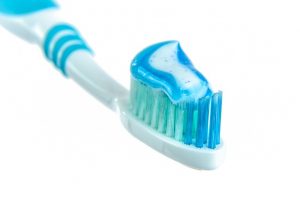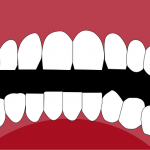Oral hygiene is an essential aspect of overall health that is often overlooked. Neglecting oral hygiene can lead to a range of consequences, from cavities and gum disease to more severe health issues such as heart disease and diabetes.
In this article, we will explore the importance of oral hygiene and its impact on overall health. We will also discuss the consequences of poor oral hygiene, the benefits of regular brushing, and provide tips for developing a healthy brushing routine.
Why Skipping Your Daily Brushing Routine Could Be Costing You More Than Just Cavities
 Neglecting oral hygiene can lead to more than just cavities. Poor oral hygiene can also cause gum disease, which can lead to tooth loss and other health issues. Gum disease occurs when bacteria in the mouth build up and cause inflammation in the gums. This inflammation can eventually lead to the destruction of the bone that supports the teeth, causing them to become loose and fall out.
Neglecting oral hygiene can lead to more than just cavities. Poor oral hygiene can also cause gum disease, which can lead to tooth loss and other health issues. Gum disease occurs when bacteria in the mouth build up and cause inflammation in the gums. This inflammation can eventually lead to the destruction of the bone that supports the teeth, causing them to become loose and fall out.
In addition to gum disease, poor oral hygiene has been linked to other health issues such as heart disease and diabetes. Studies have shown that people with gum disease are at a higher risk of developing heart disease than those with healthy gums. The bacteria that cause gum disease can enter the bloodstream and travel to other parts of the body, causing inflammation and damage.
The Consequences of Poor Oral Hygiene
The consequences of poor oral hygiene are numerous and can have a significant impact on overall health. Gum disease is one of the most common consequences of poor oral hygiene, but it is not the only one. Other consequences include tooth decay, bad breath, and tooth loss.
Tooth decay occurs when bacteria in the mouth produce acid that erodes the enamel on teeth, causing cavities. If left untreated, cavities can lead to tooth loss or require expensive dental procedures such as root canals or crowns.
Bad breath is another consequence of poor oral hygiene that can have a significant impact on social and professional interactions. Chronic bad breath can be a sign of gum disease or other oral health issues.
The Link Between Oral Health and Overall Health
The link between oral health and overall health is well-established. Poor oral hygiene has been linked to a range of health issues, including heart disease, diabetes, and stroke. The bacteria that cause gum disease can enter the bloodstream and travel to other parts of the body, causing inflammation and damage.
In addition to the link between oral health and overall health, there is also a connection between oral health and mental health. Poor oral health can lead to low self-esteem, anxiety, and depression.
The Cost of Neglecting Your Teeth
Neglecting oral hygiene can be costly in more ways than one. The financial cost of dental procedures such as root canals, crowns, and implants can add up quickly. In addition to the cost of dental procedures, neglecting oral hygiene can also lead to lost wages due to dental issues.
The Benefits of Regular Brushing
Regular brushing is essential for maintaining good oral hygiene. Brushing twice a day with fluoride toothpaste can help prevent cavities, gum disease, and bad breath. Regular brushing also helps remove plaque from teeth, which can lead to tooth decay if left untreated.
How to Develop a Healthy Brushing Routine
Developing a healthy brushing routine is essential for maintaining good oral hygiene. Brushing twice a day with fluoride toothpaste is recommended by dentists. It is also important to brush for at least two minutes each time and use proper brushing techniques.
Other tips for developing a healthy brushing routine include using a soft-bristled toothbrush, replacing your toothbrush every three months or sooner if the bristles become frayed, and flossing daily.
The Impact of Diet on Oral Health
Diet plays an important role in oral health. Sugary and acidic foods and drinks can erode the enamel on teeth, leading to cavities and tooth decay. It is important to limit sugary and acidic foods and drinks and choose healthy options such as fruits, vegetables, and dairy products.
The Role of Professional Dental Care
Regular dental check-ups and cleanings are essential for maintaining good oral hygiene. A dentist can detect early signs of gum disease or other oral health issues and provide treatment before they become more severe. Professional cleanings can also remove plaque and tartar from teeth, which can lead to tooth decay if left untreated.
Oral hygiene is an essential aspect of overall health that should not be overlooked. Neglecting oral hygiene can lead to a range of consequences, from cavities and gum disease to more severe health issues such as heart disease and diabetes.
Developing a healthy brushing routine, limiting sugary and acidic foods and drinks, and seeking regular professional dental care are all essential for maintaining good oral hygiene. By taking care of your teeth, you can improve your overall health and well-being.








